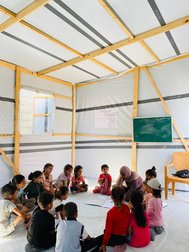Knowledge Hub
-
08/01/2020
Supporting Syrian families displaced by armed conflict: A pilot randomized controlled trial of the Caregiver Support Intervention
War Child Holland’s Caregiver Support Intervention (CSI) aims to strengthen parenting by lowering stress and improving psychosocial wellbeing among refugee parents, while also increasing knowledge and skill related to positive parenting. The CSI is a nine-session group intervention delivered by non-specialist providers. This paper describes the findings of a two-arm pilot randomized controlled trial (RCT) of the CSI with Syrian refugees in Lebanon. The primary aim was to test the feasibility of our study methodology prior to conducting a definitive RCT.
Read more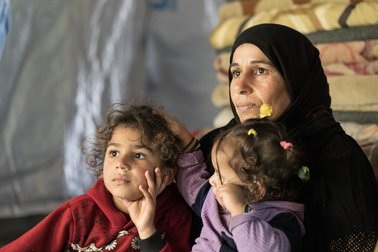
-
12/09/2020
Participation by conflict-affected and forcibly displaced communities in humanitarian healthcare responses: A systematic review
Community participation in health responses in humanitarian crises is increasingly promoted by humanitarian actors to support adoption of measures that are relevant and effective to local needs. This study aimed to understand the role of community participation in humanitarian health responses for conflict-affected populations (including forcibly displaced populations) in low- and middle-income countries and the barriers and facilitators to community participation in healthcare responses. Using a systematic review methodology, it followed the PRISMA protocol, and searched four bibliographic databases for publications reporting peer-reviewed primary research.
Read more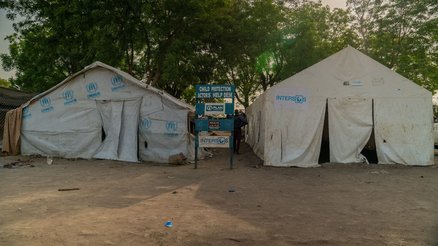
-
10/24/2016
Assessing the impact of the I-Deal Life Skills Intervention on the psychosocial wellbeing of Syrian refugee children in Lebanon
This study reports on the findings of an evaluation of I-Deal, a life skills intervention aimed at fostering resilience among early adolescent refugees, using a parallel group randomised controlled trial to compare I-Deal to a structured recreational activity group (SRA). 325 adolescents in Akkar, Lebanon, 74% of them Syrian, were randomised to I-Deal or SRA. Ultimately, the findings do not support the effectiveness of I-Deal. Several factors are considered that may help explain the lack of effect, including the aspects of the intervention design, possible measurement error suggested by low reliabilities on several instruments and a ceiling effect on our primary outcome.
Read more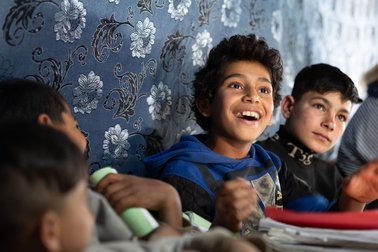
-
02/22/2021
Assessment of service provider competency for child and adolescent psychological treatments and psychosocial services in global mental health: evaluation of feasibility and reliability of the WeACT tool in Gaza, Palestine
This study identifies a scarcity of evaluated tools to assess whether non-specialist providers achieve minimum levels of competency to effectively and safely deliver psychological interventions in low- and middle-income countries. The objective of this study was to evaluate the reliability and utility of the newly developed Working with children – Assessment of Competencies Tool (WeACT) to assess service providers’ competencies in Gaza, Palestine. It evaluated; (1) psychometric properties of the WeACT based on observed role-plays by trainers/supervisors; (2) sensitivity to change among service provider competencies using pre-and-post training WeACT scores on standardized role-plays; (3) in-service competencies among experienced service providers using standardized role-plays.
Read more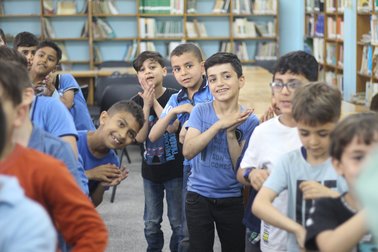
-
01/08/2021
A call for greater conceptual clarity in the field of mental health and psychosocial support in humanitarian settings
When the Interagency Standing Committee (IASC) adopted the composite term mental health and psychosocial support (MHPSS) and published its guidelines for MHPSS in emergency settings in 2007, it aimed to build consensus and strengthen coordination among relevant humanitarian actors. The term MHPSS offered an inclusive tent by welcoming the different terminologies, explanatory models and intervention methods of diverse actors across several humanitarian sectors (e.g., health, protection, education, nutrition). Since its introduction, the term has become well-established within the global humanitarian system. However, it has also been critiqued for papering over substantive differences in the intervention priorities and conceptual frameworks that inform the wide range of interventions described as MHPSS. Our aims are to clarify those conceptual frameworks, to argue for their essential complementarity and to illustrate the perils of failing to adequately consider the causal models and theories of change that underlie our interventions.
Read more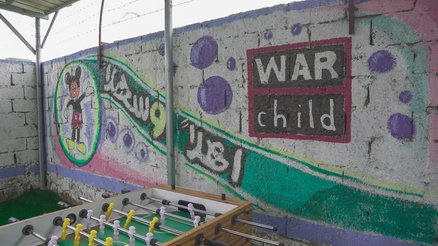
-
03/19/2021
Process evaluation of TeamUp: a movement-based psychosocial intervention for refugee children in the Netherlands
Nearly 60,000 people applied for asylum in the Netherland in 2015, confronting the governmental structures and services with great administrative, logistical and service provision challenges. Refugee children’s psychosocial needs and wellbeing are often overlooked, and post-migration support is of pivotal importance. An easy accessible movement–based psychosocial intervention, called TeamUp, was developed for children aged 6–17 living in refugee reception centres. A mixed-method process evaluation was conducted of (1) implementation process, (2) implementation quality, and (3) perceptions on implementation and outcomes. The intervention was positively perceived by all stakeholders and was found to have a positive impact on children’s psychosocial learning and wellbeing.
Read more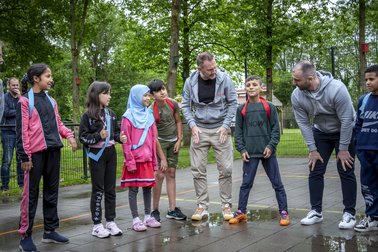
-
07/19/2021
Accuracy of a Proactive Case Detection Tool for Internalizing and Externalizing Problems Among Children and Adolescents
This study evaluates the accuracy of the Community Case Detection Tool (CCDT) in detecting children and adolescents aged 6–18 years with significant mental health care needs in a conflict-affected setting: the occupied Palestinian territory. The CCDT is developed to improve community-based detection and increase help-seeking among children and adolescents in need of mental health care. During this study, teachers and community workers were trained to use the CCDT. Children detected using the tool were invited for a structured clinical interview with a psychologist to test the accuracy of CCDT-based detection. Results show that the CCDT offers a promising low-cost solution to mitigate underdetection of mental health problems in challenging settings.
Read more